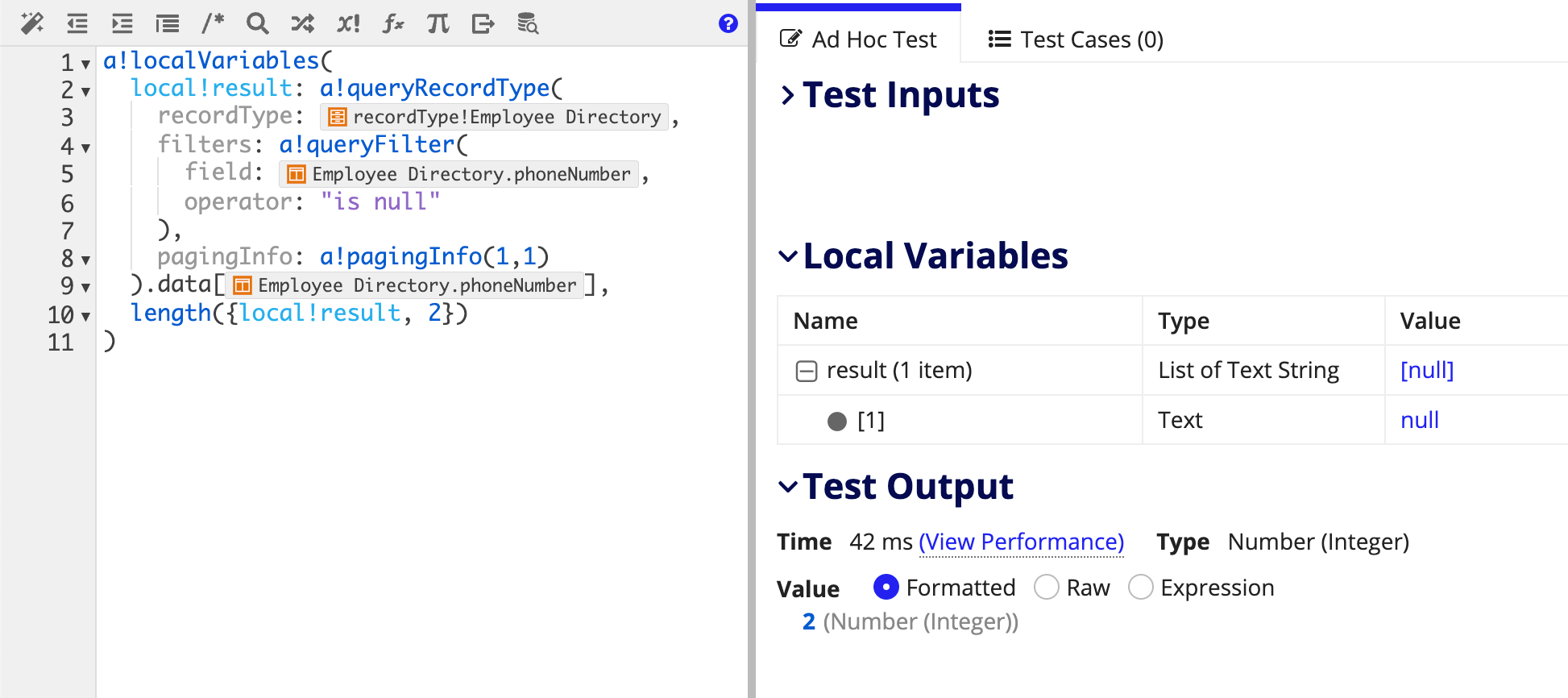FunctionCopy link to clipboard
length( array )
This function returns the number of elements in an array.
See also:
- isnull(): Use this function to determine if the process variable or array contains null values.
- count(): Use this function to include null elements in the number of elements in a process variable or array.
ParametersCopy link to clipboard
| Keyword | Type | Description |
|---|---|---|
|
|
Any Type Array |
The array in which to calculate the number of elements. |
ReturnsCopy link to clipboard
Integer
Usage considerationsCopy link to clipboard
Null elementsCopy link to clipboard
In most cases, this function does not count null elements. length({null, 2}) returns 1 because the null is not counted.
There are scenarios though where null values will be counted as part of a list. For example, let's say you have a local variable called local!result, which stores the results of a query. If the query returns a null value, then the expression length({local!result, 2}) may return 2. When local!result is a List of Text String with a single null field, Appian evaluates the expression as length({{null}, 2}) and returns 2.

If this function is used on a null result from the Query Database smart service, the expression may fail to evaluate and cause an error. To avoid an error, first check the result set for a null value using the isnull() function before attempting to count the result set using the length() function.
ExamplesCopy link to clipboard
Length of listCopy link to clipboard
1
length({10, 20, 30})
Copy
Returns 3.
Length of list with null valuesCopy link to clipboard
1
length({10, null, 30})
Copy
Returns 2. Null values are skipped.
Length of list with nested listCopy link to clipboard
1
length({1, 2, merge({1}, {2})})
Copy
Returns 3. Nested lists are counted as one value.
Length of list with nested null listCopy link to clipboard
1
length({1, 2, merge({null})})
Copy
Returns 3. Nested lists with only null values are counted as one value.
Feature compatibilityCopy link to clipboard
The table below lists this function's compatibility with various features in Appian.
| Feature | Compatibility | Note |
|---|---|---|
| Portals | Compatible | |
| Offline Mobile | Compatible | |
| Sync-Time Custom Record Fields | Compatible | Can be used to create a custom record field that only evaluates at sync time. |
| Real-Time Custom Record Fields | Incompatible | Custom record fields that evaluate in real time must be configured using one or more Custom Field functions. |
| Process Reports | Compatible | |
| Process Events | Compatible | |
| Process Autoscaling | Compatible |
